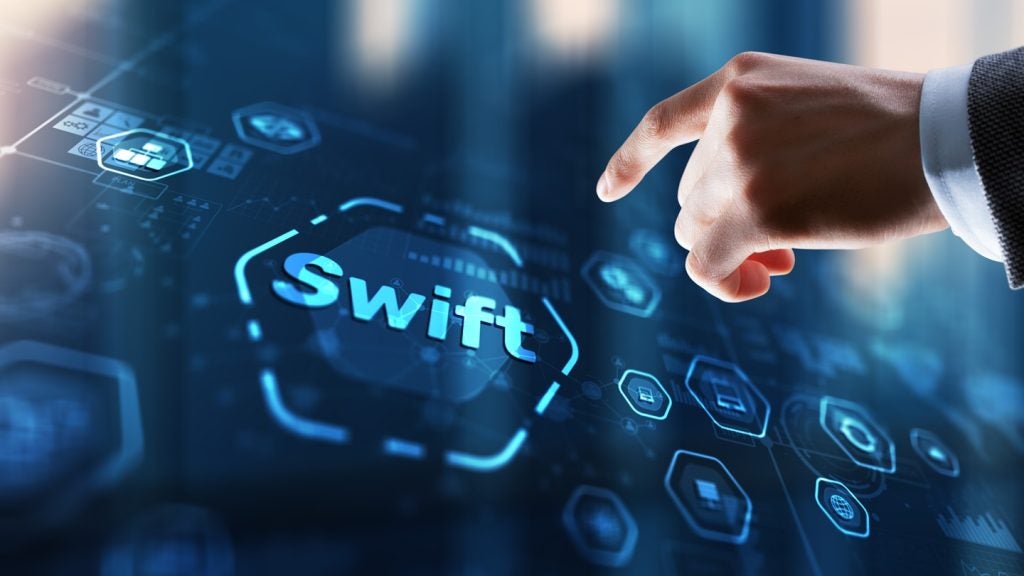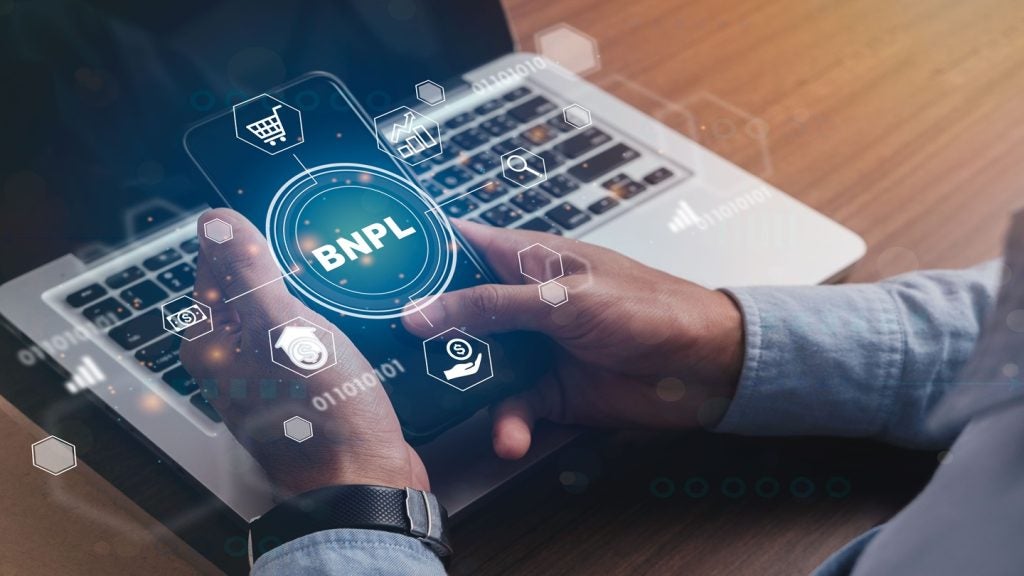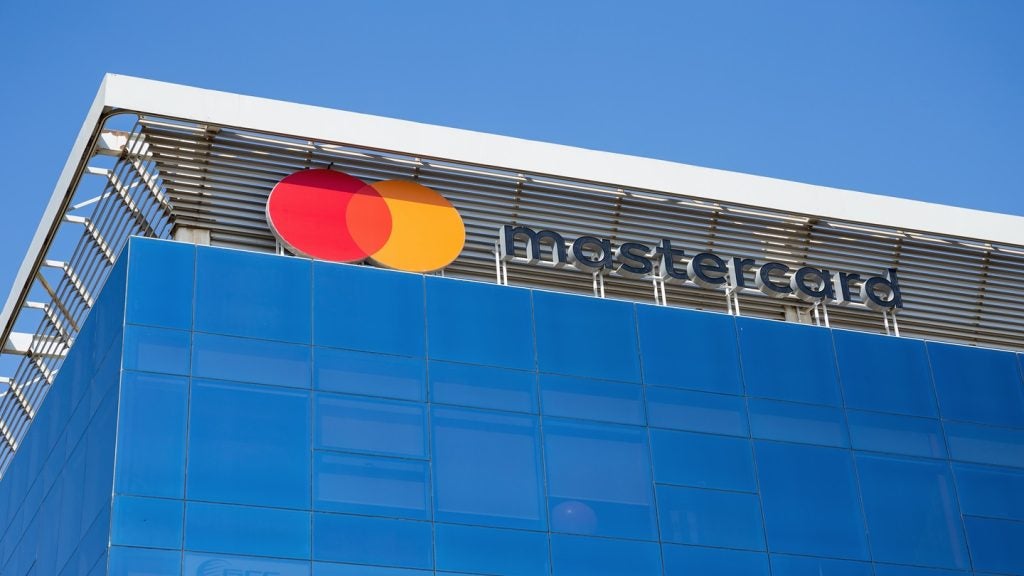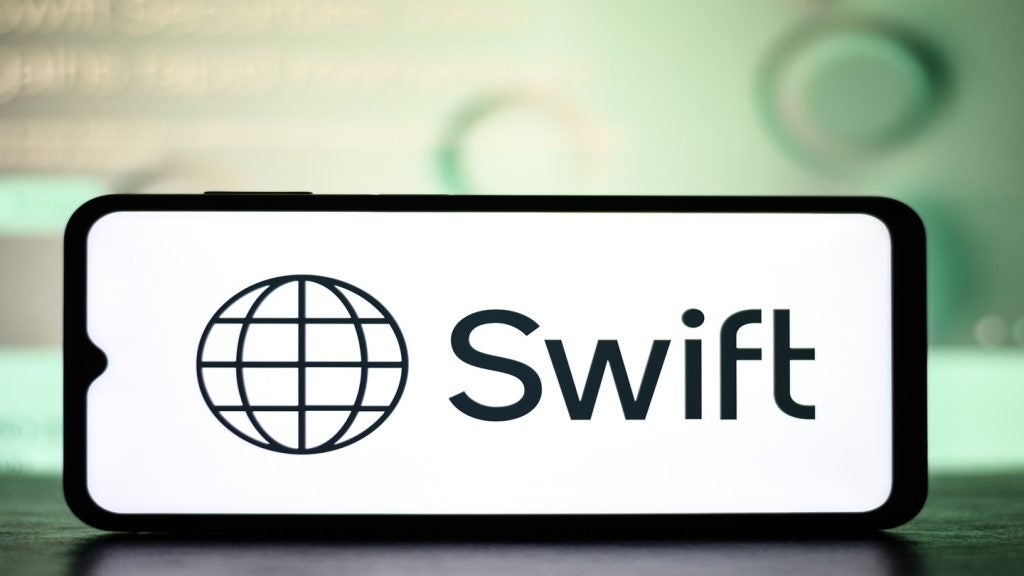SECURITY AND
FRAUD
First Data and RSA pilot
encryption solution
An encryption-based payments data
initiative embarked on some six months ago by First Data in
conjunction with US data service specialist EMC Corporation’s
security division, RSA, is to be tested in a pilot involving more
than 400 bricks-and-mortar and online merchants of all sizes.
Originally named First Data Secure
Transaction Management, the pilot will be under the solution’s new
name – Trans-Armor.
The TransArmor solution is based on
RSA’s SafeProxy architecture, which enables payment card data to be
encrypted at the time it is captured by the merchant’s POS
application.
Data remains encrypted until
delivered to First Data’s authorisation switch where decryption
occurs.
How well do you really know your competitors?
Access the most comprehensive Company Profiles on the market, powered by GlobalData. Save hours of research. Gain competitive edge.

Thank you!
Your download email will arrive shortly
Not ready to buy yet? Download a free sample
We are confident about the unique quality of our Company Profiles. However, we want you to make the most beneficial decision for your business, so we offer a free sample that you can download by submitting the below form
By GlobalDataOnce authorised through the switch,
the card number is replaced by a token value that cannot be linked
back to the original card data, but otherwise behaves like a card
number. When needed, merchants can access the original card number
via a secure vault First Data maintains for authorised
look-ups.
According to First Data, an
advantage of TransArmor is that unlike some rival encryption
solutions it can be implemented without the need for new hardware
or back-end IT operations.
Response by merchants to the
TransArmor pilot has been “enormous,” said Craig Tieken,
vice-president of merchant product management at First Data.
ONLINE PAYMENTS
IRS to go on the hunt for
errant merchants
In its hunt for additional tax
revenue, from 2011 the US Internal Revenue Service (IRS) will have
a new weapon in its is armoury, Form 1099-K.
The product of a joint regulatory
effort between the IRS and US Treasury, 1099-K is aimed at exposing
merchants that fail to declare all or part of receipts from online
sales.
From next year all payments
settlement service providers will be required to annually furnish
the IRS with a form 1099-K for each of its merchant clients
detailing the gross amount of transactions processed each month and
the name and address of the merchant.
The requirement covers all payment
cards and alternative payments services, such as PayPal, but
excludes automated clearing houses.
The IRS explained that an ACH
merely processes electronic payments between payors and payees, and
does not itself have contractual agreements with payees to use the
ACH network.
Also excluded from the form 1099-K
filing requirement are merchants with gross annual transactions of
$20,000 or less, or fewer than 200 annual transactions.
The IRS’ regulation specifies that
payment settlement service providers may be a domestic or foreign
entity.
PRODUCT LAUNCHES
US start-up patents first
fully electronic cheque
Check-21, the US law permitting
imaging of cheques by cheque recipients, eliminated a significant
amount of the paper-chase involved in the $41trn annual cheque
payment system.
Now, start-up company Global
Standard Financial (GSF) aims to take the process a major step
forward with the creation of an entirely paperless cheque.
In a key step towards this goal,
GSF has been awarded two patents by the US Patent Office covering
the processes to securely create paperless Check 21-based cheques,
or what GSF terms digitally originated cheques (DOC). GSF aims to
deliver its first product in 2010.
Another term for DOCs is electronic
payment orders (EPO) and was first used by the Chicago Federal
Reserve in a policy paper published in November 2009, which
outlined benefits of paperless cheques. The term was used to
distinguish pure digital cheques from paper-based Check-21 image
processing.
Commenting on the patents, GSF’s
founder and CEO Allen Lipis said: “For the first time, GSF’s
software will allow anyone to create and process these [DOCs]
without the need for a paper cheque to pay someone – including
peer-to-peer payments, invoices, gifts and payments to government
institutions.”
According to the latest Electronic
Check Clearing House statistics, 14bn cheque images are processed
annually in the US, with 97% of banks able to receive cheque
images.
PAYMENTS
PROCESSING
Direct Fed builds on online
ACH payments popularity
Building on strong growth in online
automated clearing house (ACH) transactions in the US, Direct Fed
Payment Solutions has launched CheckAlt, a service that enables
merchants to send invoices and review payment reports instantly via
the internet.
The service is an addition to
Direct Fed’s electronic cheque processing platform launched in
2004.
According to Direct Fed, with
CheckAlt customers pay directly from their bank account into the
merchant’s bank account thus reducing costs for the merchant and
ensuring that funds are available in two banking days.
Direct Fed’s executive vice
president Jeff Korbin said: “By offering merchants a way to reduce
payments via credit cards, which take a%age of your revenue, or
wire transfers, which run high costs, CheckAlt enables businesses
to become more profitable and ensures timely access to cash
flow.”
Highlighting the growing popularity
of internet based ACH transactions, Korbin noted that in third
quarter of 2009 there were 1.6bn ACH internet transactions,
representing a 20% increase from the previous year.
According to Direct Fed it has
processed more than 7m cheques valued at a total of some $6bn in
transactions and is the fastest-growing cheque processing company
servicing credit unions.
INDUSTRY TRENDS
Saving money and
trees
With environmental conservation a
hot topic, US bank Wells Fargo is using the significant success it
has enjoyed with its online bank statements and envelope-free ATM
initiatives to encourage more customers to go paperless.
“Since 2006, Wells Fargo customers
who have chosen to receive their banking statements online have
helped save more than 100,000 trees,” said Stephanie Smith, senior
vice-president at Wells Fargo’s internet services unit.
On its ATM initiative, Jonathan
Velline, senior vice-president of Wells Fargo ATM banking, said by
the end of 2009 the bank’s envelope-free ATMs had processed more
than 100m cheques.
This, he added, resulted in 97m
fewer paper envelopes being used, a saving of 550 tons of paper or
the equivalent of nearly 10,000 trees.
INTERNET BANKING
Another good year for
Harland’s Cavion
Harland Financial Solutions (HFS)
enjoyed strong demand for its Cavion Internet Banking solution in
2009, signing up some 120 banks and credit unions as new clients.
This improved on the US payments technology vendor’s 118 new Cavion
client wins in 2008 and was the third consecutive year in which
over 100 new clients adopted the solution.
“We are extremely proud of the
product’s ability to meet the needs of both large and
community-sized financial institutions alike,” said Scott Hansen,
HFS’ executive vice-president.
Building on the internet solution’s
success, HFS launched a mobile internet version in 2008. This has
also enjoyed solid demand, with over 100 banks having adopted it by
the end of 2009.
MOBILE PAYMENTS
Pay by ‘bump’ with
PayPal
PayPal’s pay by bump, the latest
feature of its iPhone Send Money application first launched in
2008, has still not proven to the company if it will be an
interesting gimmick or a roaring success.
With the new “bump” feature, users
can put two iPhones together and funds are transferred between
their PayPal accounts. In a restaurant situation, for instance,
users can divide and reimburse each other for the cost of a meal,
including tip and tax, for up to 20 people.
The technology behind the bump
feature was developed by Bump Technologies, a venture-capital
backed company established in 2008.
According to Bump, the application
on a phone uses sensors to literally “feel” the bump and then sends
that information to its central routing platform which pairs up
phones that “felt the same bump.” Bump then routes information
between the two matching phones in each pair.
Over 10m people have already
downloaded the Bump application, which can also be used for data
and image transfers.
SECURITY AND
FRAUD
Fifth Third joins shift to
end-to-end encryption
End-to-end payments data encryption
incorporating tokenisation is gaining adherents at a cracking pace.
Among the latest adopters is US payments processor Fifth Third
Processing Solutions.
The world’s fourth-largest payments
processor, Fifth Third serves 170,000 merchant locations and 3,000
banks and credit unions.
For deployment of the solution
Fifth Third has selected Voltage Security, which numbers among
users of its various security solutions ING Group, Wells Fargo and
Heartland Payment Systems.
Bob Bartlett, Fifth Third’s CIO,
commented: “We believe that due to the unique way in which Voltage
encryption keys are created and managed, merchants will not
experience significant increased ongoing operational support costs.
This is something that is often overlooked when merchants are
assessing security options.”
Fifth Third will deploy the Voltage
Security with national merchants as well as small regional
merchants.
SECURITY AND
FRAUD
US internet fraud losses
skyrocketed in 2009
Losses resulting from internet
crime in the US skyrocketed in 2009, more than doubling from $265m
in 2008 to $559.7m at the end of the year, reveals data from the
Federal Bureau of Investigation’s Internet Crime Complaint Center
(ICCC).
Losses in 2009 related to 336,655
complaints received by the ICCC, an increase of 22.3% compared with
2008.
The ICCC reported that although
complaints consisted of many fraud types, advance-fee scams (AFS)
that fraudulently used the FBI’s name ranked number one and
accounted for 16.6% of complaints.
AFS involve criminals emailing
potential victims in an attempt to persuade them to advance money
by promising them they will be rewarded with a far larger gain.
Second on the list of frauds was
non-delivery of merchandise and/or payment and accounted for 11.9%
of complaints.
Internet crime losses reported in
the US totalled $183.12m in 2005.
CONTACTLESS
PAYMENTS
Accolade for Giesecke &
Devrient’s sticker
Giesecke & Devrient (G&D),
the world’s second-largest smartcard manufacturer, has walked off
with the Institute for International Research’s (IIR) 2010 CIT
Golden Card award in the of “most innovative payment card” category
for its contactless payment sticker solution, Convego Air
Mobile.
Organised by the IIR since 2002,
the awards are specifically aimed at recognising achievements in
the smartcard industry.
The Convego Air Mobile sticker is
made of thin, pliable foil, measures 43mm by 33mm (1.7 inches by
1.3 inches) and can be affixed to devices such as mobile phones.
The sticker contains the full functionality of a credit or debit
card.
Among adopters of the G&D
sticker is Canadian mobile payments startup EnStream, which has
selected the solution for a three-month pilot programme under its
brand name, Zoompass.
EnStream was established in 2009 as
a joint venture company owned by Canada’s three leading national
wireless operators – Bell Mobility, Rogers Communications and
Telus.
MOBILE PAYMENTS
China Mobile steps up mobile
payments drive
Eyeing further expansion into
mobile payments China Mobile, China’s largest mobile network
operator, is to acquire a 20% stake in Shanghai Pudong Development
Bank (SPDB) in a cash deal worth CNY39.8bn ($5.8bn).
On closure, China Mobile will
become SPDB’s second-largest shareholder after Shanghai
International Group, the investment arm of the Shanghai Municipal
government.
In a statement, China Mobile said
SPDB and itself would co-operate in the joint development of
various forms of mobile phone-based transaction services including
payments, money transfers and bank cards.
China Mobile’s first move into
mobile payments came in 2003 with the formation of Union Mobile Pay
(UMP), a joint venture with China’s payment card organisation China
Union Pay.
Launched in mid-2004 and now in
partnership with 19 banks, UMP mobile payment services include bill
payments, fund transfers and lottery and airline ticket
purchases.
By the end of 2008, UMP had 16.2m
users, while by June 2009 the number of users was approaching
20m.
Though small in the totality of
China’s payment market, payment volumes have also grown
significantly – reaching CNY24.3bn in 2008 and CNY17bn in the first
half of 2009.
CONTACTLESS
PAYMENTS
Contactless payments debuts in
South Africa
Contactless payments are about to
make their first appearance in South Africa, with the commission in
May of a high-speed rail service, Gautrain, between Johannesburg
and Pretoria.
For the service, French smartcard
vendor ASK has been selected to provide a contactless ticketing
solution in partnership with South African biometric and smartcard
technologies specialist Ideco.
Gautrain will also serving
Johannesburg’s international airport and is anticipated that it
will carry up to 100,000 passengers daily.
In addition to the rail service,
the ticketing solution will also be applied to related bus and
parking facilities and eventually be extended to form part of a
single ticketing system for all public transport across Gauteng, a
province with a population of about 10m.
The ASK/Ideco solution permits money to be loaded on to
smartcards using cash, debit or credit cards.







